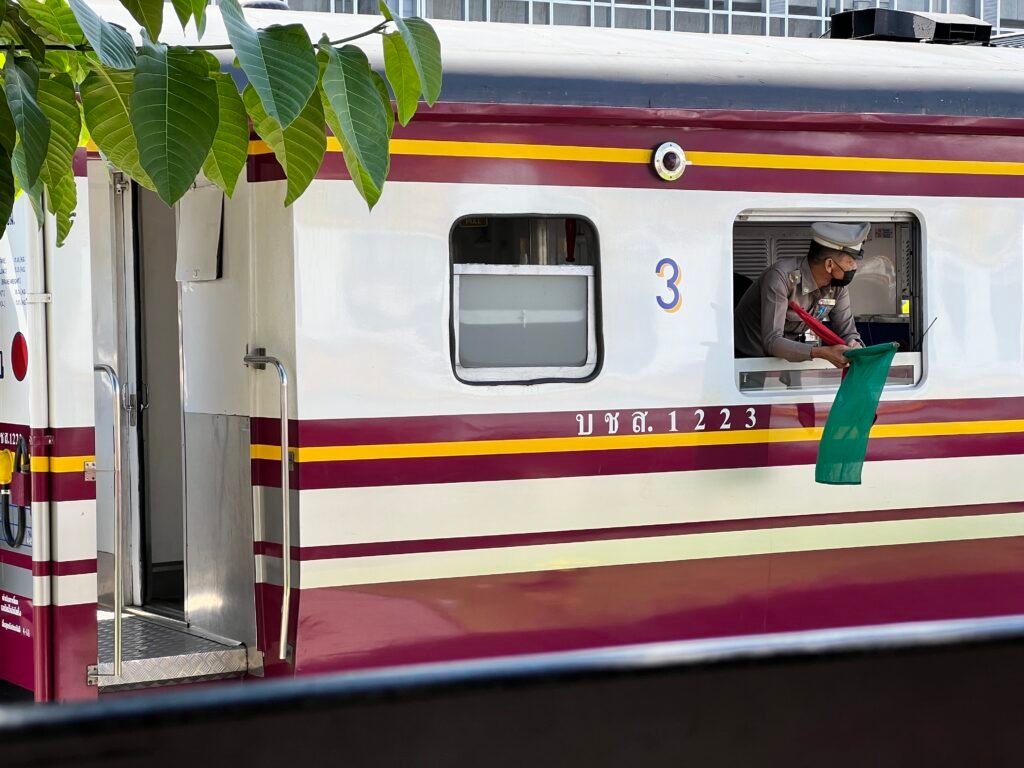
This image of a train in Bangkok station captures the essence of Slowmad, embodying the beauty of slow travel. From my childhood admiration to my adult choices, trains have always been my preferred mode of exploration. Not only are they comfortable and safe, but they also offer an immersive travel experience.
Unlike car journeys, which I find long, stressful and risky, train travel offers a social and ecological alternative. Despite challenges such as shorter routes and higher prices, the International Energy Agency highlights the potential of rail travel to reduce global transport emissions.
Train travel in Thailand, with its affordable prices and scenic routes, was an unforgettable part of our ‘slow travel’ around-the-world experience. Unlike the emphasis on reducing air travel, the environmental benefits of train travel often go unnoticed. Trains not only emit less carbon but are also more energy-efficient than cars.
Did you know that a train can carry a thousand or more passengers, significantly reducing emissions compared to individual cars? Even with diesel fuel, trains emit only a fraction of the greenhouse gases produced by lorries. Eurostar’s carbon footprint is just 4g per passenger per kilometer, making it an efficient choice for conscious travelers.

As we advocate for positive change, let’s prioritize the expansion and improvement of rail accessibility. Instead of moaning about what we shouldn’t do, let’s champion the benefits of rail travel. Despite today’s financial challenges and limited routes, the positive impact on the environment makes it a cause worth supporting.
While I recognise the financial limitations of travelling families and the limited itineraries offered by some (often wealthier) countries, it’s worth exploring eco-friendly alternatives such as ferries or coaches, which have a lower carbon footprint. Travelling abroad promotes cultural understanding, tolerance and open-mindedness. We should continue to travel. However, we must be conscientious about choosing modes of transport that minimise our impact on the environment.
Our family’s trip around the world has been characterised by short-haul flights, lots of walking and the use of buses, trams and trains. Even if the solution isn’t perfect, we’re doing our best. I look forward to the return of trains and hope that environmental initiatives, such as those in New Zealand (where several new campaigns are pushing for improved passenger rail travel) will pave the way for a more relaxed and sustainable future for travellers.
As we plan train journeys to Greece, regretting the disappearance of coastal routes, I dream of a resurgence of train travel, bringing back the relaxed charm of slow exploration.
